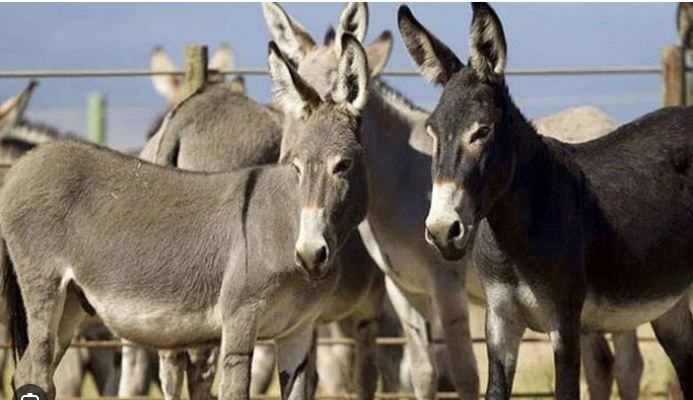Chinese firms seek donkey meat export licenses from Pakistan
Staff Report
ISLAMABAD: Two Chinese companies have applied for official licenses to export donkey meat from Pakistan, as the Ministry of National Food Security and Research confirms ongoing scrutiny and regulatory steps to formalize this unusual trade.
However, concerns have intensified after the Islamabad administration uncovered an illegal donkey meat operation on the outskirts of the capital.
According to ministry sources, both companies have submitted applications for export licenses and slaughterhouse operations. One of them — the Chinese firm Hengyang — has already signed a formal protocol with the Pakistani authorities to export donkey meat and bones. A slaughterhouse facility built in Gwadar is reportedly ready for operation but has not yet begun exports due to pending regulatory clearance from China.
Officials have clarified that Hengyang will be permitted to operate only from the designated slaughterhouse in Gwadar. No donkey meat production will be allowed elsewhere in the country. The ministry also stated that once regulatory formalities are completed, exports of donkey meat and bones to China will begin via Gwadar, potentially opening a new revenue stream for Pakistan.
The Ministry of Food Security expressed optimism that the legal export of donkey meat and bones could generate significant economic benefits for Pakistan.
It said donkey meat was being illegally prepared in Islamabad where a foreign national was involved in the practice without a license. A second Chinese company recently applied for a license to export donkey meat, ministry officials said.
Islamabad’s Deputy Commissioner Irfan Memon confirmed in a video statement that an illegal donkey meat operation was recently uncovered in the Tarnol area. A team from the Islamabad Food Authority raided the site and found 1,000kg of chopped meat and 40 live donkeys.
Authorities arrested a foreign national and a local watchman at the location. According to Memon, intelligence had been received a week earlier, prompting a covert operation that lasted several days to catch the culprits in the act.
“There are reports suggesting the meat was being supplied to some foreign nationals within Pakistan and possibly even sent outside Islamabad,” the deputy commissioner said. “However, no conclusive evidence has been found so far, and investigations are ongoing to determine how many donkeys were slaughtered and where the meat was distributed.”
Memon emphasized that no donkey meat had been reported in any restaurants across Islamabad over the past two years, and the city’s food authority continues to conduct unannounced inspections at food establishments — even during nighttime hours.



